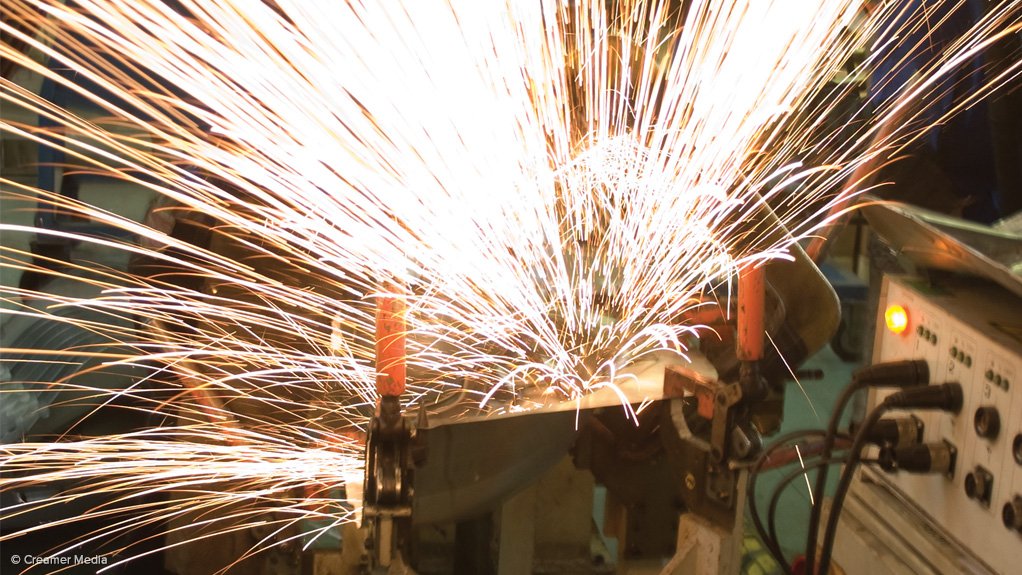South Africa’s manufacturing sector dipped into a recession in the second quarter of the year as production contracted by 0.4% year-on-year in June, from a downwardly revised 1.6% drop in May.
Despite the month-on-month seasonally adjusted 0.9% rise in manufacturing production, which had contained the 1.2% quarter-on-quarter rate of decline, on a seasonally adjusted annualised basis, output had contracted by 4.9% quarter-on-quarter.
Compared with the first quarter’s seasonally adjusted growth of 2%, the dip had left the sector now officially in recession, Investec said in a note to clients on Tuesday.
The latest Statistics South Africa manufacturing output report showed the year-on-year decrease in manufacturing production, mainly owing to the petroleum, chemical products, rubber and plastic products and basic iron and steel, nonferrous metal products, metal products and machinery divisions.
The motor vehicles, parts and accessories and other transport equipment and the food and beverages divisions had made large positive contributions during June.
The seasonally adjusted manufacturing production decreased as six of the ten manufacturing divisions reported negative growth rates over this period.
The largest contributors to the 1.2% quarter-on-quarter decrease in manufacturing production were the basic iron and steel, nonferrous metal products, metal products and machinery and the petroleum, chemical products, rubber and plastic products sectors.
“Although [the year-on-year contraction of 0.4% is] slightly better than the market forecast of a 0.7% decline, conditions remain unfavourable,” Nedbank’s economic unit commented, noting that production was expected to decline off an already low base in 2015 as a whole.
Investec’s Annabel Bishop added that business conditions in the sector were “becoming grimmer”, with the second-quarter Bureau for Economic Research manufacturing business conditions indicator showing that 71% of respondents were dissatisfied with present business conditions.
“[It is] a very worrying outcome,” she said.
South Africa’s manufacturing sector had lost ground on competitiveness on the back of rising input costs from labour, electricity, water, property rates and taxes and raw materials; skills shortages and low labour productivity, which was causing the nation to deindustrialise.
“We see the manufacturing sector remaining under pressure for the rest of the year, only recovering to robust growth territory after South Africa’s major trading partners see their economic growth lift back toward trend rates in a few years' time,” Bishop concluded.
EMAIL THIS ARTICLE SAVE THIS ARTICLE
To subscribe email subscriptions@creamermedia.co.za or click here
To advertise email advertising@creamermedia.co.za or click here











